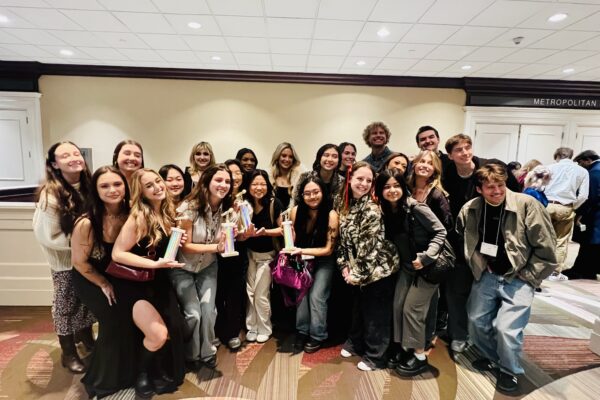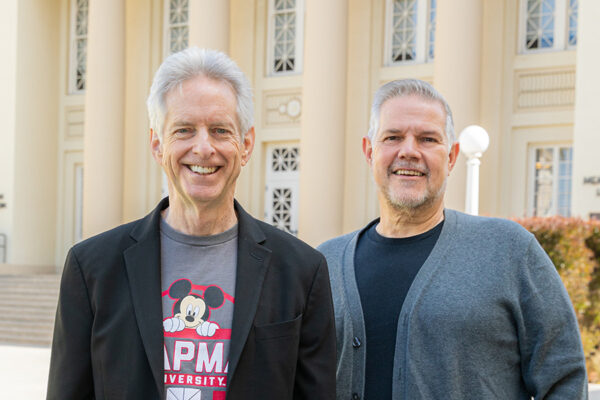Battle indifference and you battle hate, Nobel Laureate and Holocaust survivor Elie Wiesel told a Memorial Hall audience today during his first visit as a Distinguished Presidential Fellow at Chapman University.
“The opposite of love is not hate but indifference. And the opposite of education is not ignorance but indifference,” said Wiesel. “I believe the number one goal of education is to fight indifference.”
Wiesel’s lecture was delivered to an audience of Chapman students, staff and faculty as well as Orange County high school students who filled Memorial Hall to hear the human-rights leader Tuesday morning. This week marks Wiesel’s third visit to the university but his first as a Distinguished Presidential Fellow. Throughout the week he will meet with students from a variety of disciplines, as well as high school educators who teach Holocaust history.
In Tuesday’s lecture, though, Wiesel focused his “Knowledge and Ethics” talk less on his personal history and more on what can be done to prevent genocides. He listed atrocities in Cambodia, Bosnia, Sudan and Darfur as evidence of humanity’s failure to find “the art of teaching something that is above and beyond human understanding.” But in his trademark fashion, the soft-spoken Wiesel says he would be the last person to give up the effort. In today’s fast-paced information era, knowledge of such events is not the problem.
“We know where these things are happening” and an ethical response is to use that knowledge to react, he said.
“Ethics doesn’t mean that I can help the whole world, but it does mean I must try,” said.
Following his talk, Wiesel took questions from the audience, including those regarding his views on Israel and Palestinian relations and contemporary immigrant issues.
“We do what we can to stop the violence on both sides,” Wiesel said of the Israeli-Palestinian conflict.
And refugees and immigrants are always first in his heart, he said. Even as he began his new life in the United States, he admitted that the fearfulness of a refugee dogged him. “If I had to make a U-turn while driving I would pull over and switch places with my wife,” he said.
Wiesel was awarded the Nobel Peace Prize in 1986 for his humanitarian work. He is the author of more than 40 books, including the 1958 Night, which has been translated into 30 languages and sold millions of copies. Since 1976, he has been the Andrew W. Mellon Professor in the Humanities at Boston University, where he also holds the title of university professor. He is a member of the faculty in the Department of Philosophy as well as the Department of Religion.




Add comment